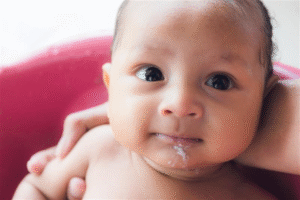when to be concerned about vaginal yeast infections

While vaginal yeast infections are often associated with adult women, they can also occur in young children and infants. Vaginal yeast infections in kids, especially in those who are still in diapers or undergoing toilet training, are more common than many parents realize. Recognizing the symptoms and causes of yeast infections in girls early on helps prevent discomfort and potential complications. Pediatric urologist Dr. Christopher Brown offers insights into identifying, treating and preventing yeast infections in children, along with when it’s time to seek medical care.
what is a vaginal yeast infection?
A vaginal yeast infection, or vulvovaginal candidiasis, is a fungal infection caused primarily by Candida albicans. This type of fungus naturally lives in and on our bodies, including in the vaginal area. However, when conditions allow it to multiply uncontrollably, it can cause an infection. Although commonly seen in adult women, yeast infection in girls, including toddlers and infants, is not unusual and should always be addressed with proper medical care.
symptoms of vaginal yeast infection in children
Recognizing the signs of yeast infection in infants and young girls is important for ensuring timely treatment. Children may not always be able to express what they are feeling, especially if they are very young, so caregivers should watch closely for physical symptoms and behavioral changes.
Common vaginal yeast infection symptoms in kids include:
- Redness and swelling around the vulva (the external part of the genitalia)
- Persistent itching or discomfort in the genital area
- A thick, white discharge, often compared to cottage cheese
- Pain or burning while urinating
- Fussiness in infants, especially during diaper changes
- Visible irritation or scratching of the genital area
causes of yeast infections in little girls
Several factors can contribute to a yeast infection in little girls, even those who have not yet reached puberty. The most common causes of vaginal yeast infections involve situations that disrupt the natural balance of bacteria and yeast in the body. These include:
- Use of antibiotics: Antibiotics not only target harmful bacteria but also kill beneficial bacteria, allowing yeast to thrive.
- Weakened immune system: Children with chronic illnesses or those undergoing certain medical treatments may be more prone to infections.
- High blood sugar levels: Children with poorly controlled diabetes may experience more frequent yeast infections.
- Tight or synthetic clothing: Underwear or leggings made from non-breathable fabrics can trap heat and moisture, creating an ideal environment for yeast to grow.
- Hormonal changes: Puberty brings shifts in hormone levels that can lead to vaginal yeast infections in pre-teens and teens.
- Warm, moist diaper environment: In infants and toddlers, prolonged exposure to moisture in diapers can contribute to infant vaginal yeast infection or toddler yeast infection.
treatments for vaginal yeast infections in kids
Vaginal yeast infection treatments usually involve antifungal medications, which may come in the form of creams, ointments, suppositories or oral medicine, depending on the child’s age and symptoms. These medications are often prescribed by a pediatrician or primary care provider and should be taken exactly as directed to ensure full resolution of the infection.
how to prevent yeast infections in children
Prevention plays a key role in managing yeast infections in girls. Consider the following steps to help reduce your child’s risk:
- Use only fragrance-free soaps and wipes in the genital area
- Avoid tight-fitting clothes, especially synthetic fabrics that trap heat and moisture
- Encourage bathroom hygiene, teaching young girls to wipe front to back
- Limit use of bubble baths and scented products in bathwater
- Watch for early signs, especially in kids who have taken antibiotics or have other risk factors
- Maintain good diaper hygiene for infants and toddlers, including frequent changes and thorough drying
If your child has frequent or recurring infections, further medical evaluation may be necessary to determine underlying causes.
when to seek medical attention for a yeast infection
Although all suspected yeast infections in children should be evaluated by your child’s pediatrician, certain situations warrant prompt or specialized care. These include:
- Symptoms that persist even after completing a full course of treatment
- More than four yeast infections per year, which may indicate an underlying condition
- Spreading rash or infection, particularly if it reaches the thighs or abdomen
- Severe discomfort during urination
- Recurring infections in children with diabetes or immune system issues
- Unusual discharge with a foul odor or abnormal color, which may suggest a different type of infection
You may be referred to a pediatric urologist. At Dayton Children’s, our urologists are here to support your child’s health with compassionate and comprehensive treatment for vaginal yeast infections in kids, from diagnosis to prevention strategies for the future. Schedule an appointment online or call 937-641-4000.
worried about a symptom? we’re here to help.
From everyday issues like coughs or pink eye to more serious concerns like diabetes or asthma, we help you understand what’s typical — and when to be concerned or find care now. Get expert guidance on your child’s symptoms and conditions from your trusted partner in pediatric care.




